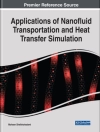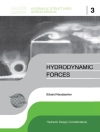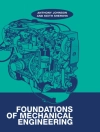The fuel consumption of a modern combustion engine is one of the most important purchase criteria in contemporary society. Increasing oil prices and exhaust emissions taxes force the automotive industry to continuously improve the vehicle engines. The fuel consumption is closely related to the frictional losses of an engine. New material pairings or constructive modifications of the piston group can reduce such losses. Another innovative concept to lower the frictional forces is the micro-structuring of thermo-mechanically highly stressed surfaces. Within an interdisciplinary research group sponsored by the German Research Foundation, scientists at the Leibniz Universität Hannover and Universität Kassel have been working together to investigate this research topic. This final report presents their findings and offers scope for further discussion.
Table of Content
Introduction.- Project overview.- Methods and models for the design of microstructures.- Micro structuring by means of cutting processes.- Micro structured thermal sprayed surfaces.- Surface characterization based on optical metrology.- Tribological mechanisms of micro structures.- Test of cylinder liner under fired engine conditions.
About the author
This contributed volume presents the final research results of the DFG Research Group 576, which is a joint initiative of five different institutes of the Leibniz Universität Hannover and the Universität Kassel, Germany. The research of the DFG Research Group 576 focuses on improving the tribological behavior of thermomechanically highly stressed surfaces, particularly on cylinder liner for combustion engines. The target audience primarily comprises researchers and experts in the field but the book may also be beneficial for graduate students who want to specialize in the field.












